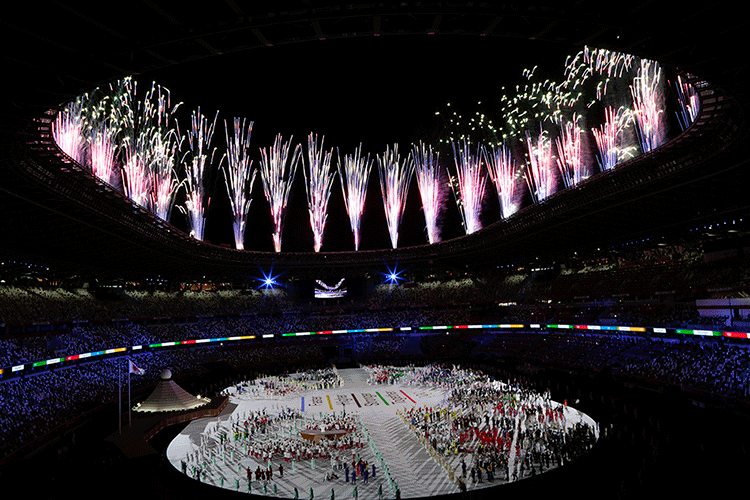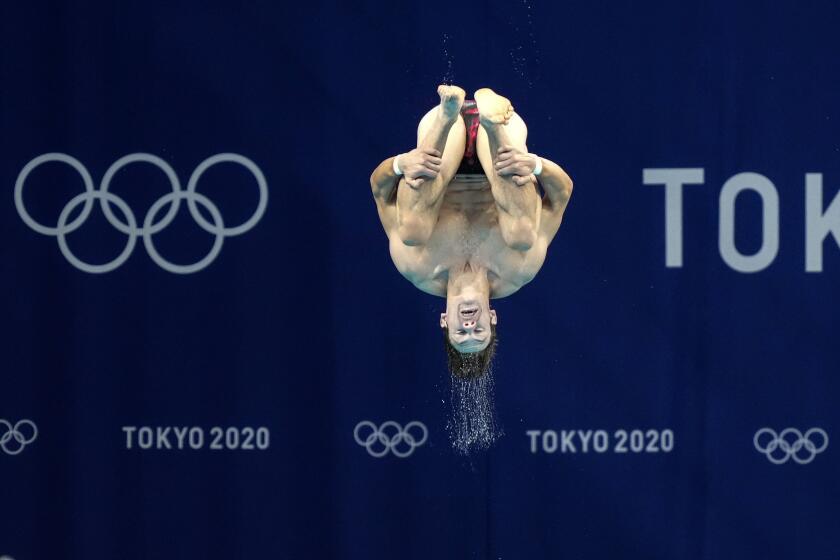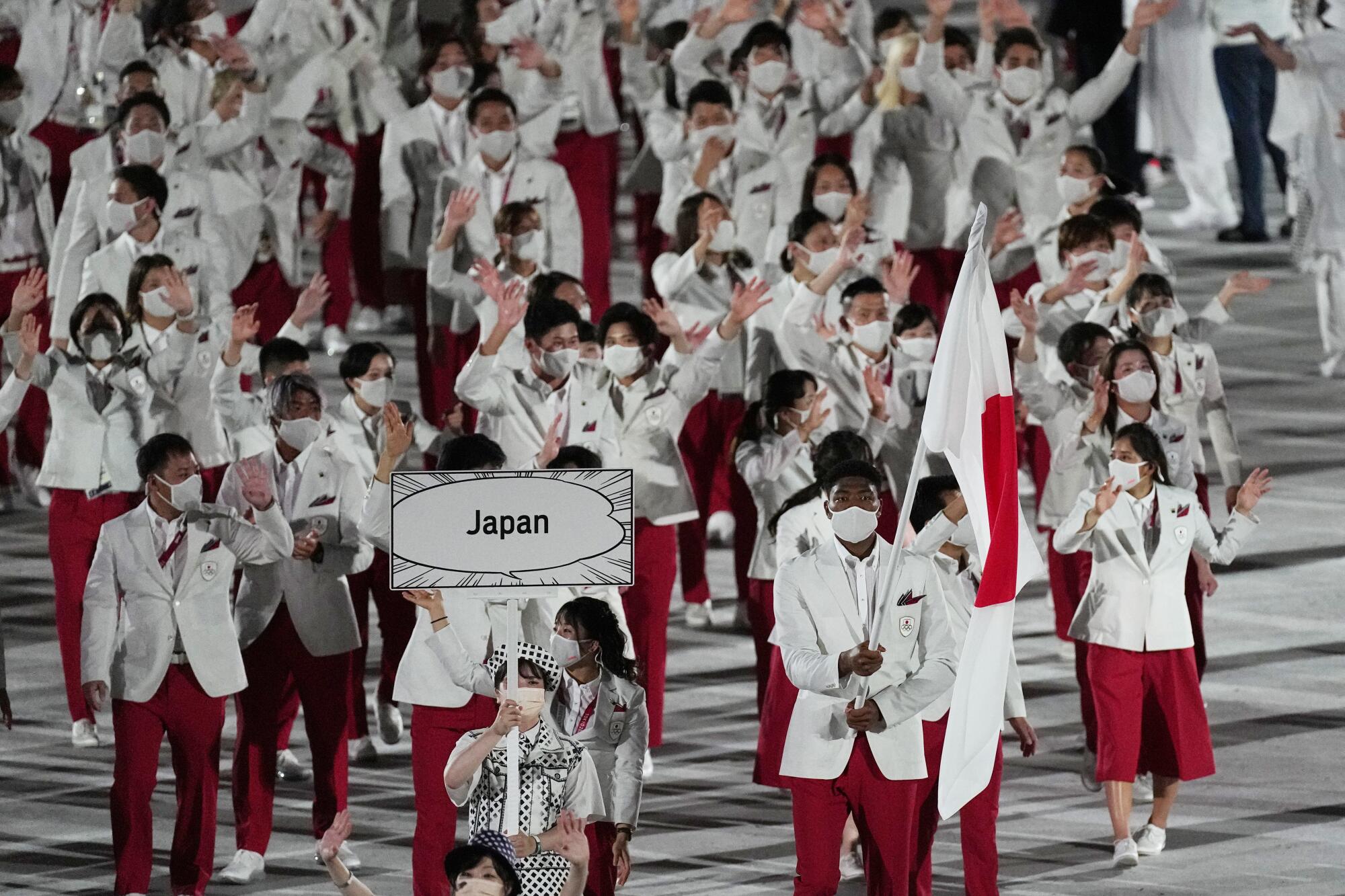
- Share via
TOKYO — With millions around the world watching, Rui Hachimura walked onto the gleaming white floor of Japan’s Olympic Stadium on Friday waving the country’s red-and-white flag.
The 6-foot-8 Washington Wizards forward with a Japanese mother and Beninese father led his nation’s athletes in procession, a beaming smile peeking out of the sides of his face mask. Towering 20 inches over his fellow flag bearer, wrestler Yui Susaki, the 23-year-old’s careful steps signaled a changing face of Japan.
But in an unpopular Games, echoing with protests outside the largely empty Tokyo stadium, the discontent and ire over the influx of foreign visitors in the midst of a pandemic threatened to overshadow the inclusive image Japan had intended with Hachimura.
Even apart from the COVID-19 pandemic, the years and months leading up to the Games have been marked by a series of disappointments over promises to highlight diversity. The planet’s biggest sporting event has been troubled by high-profile resignations following scandals involving sexist and discriminatory remarks. The Olympic moment will come and go with neither a highly anticipated new anti-discrimination law nor immigration policies that reflect Japan’s fast-changing needs and norms.
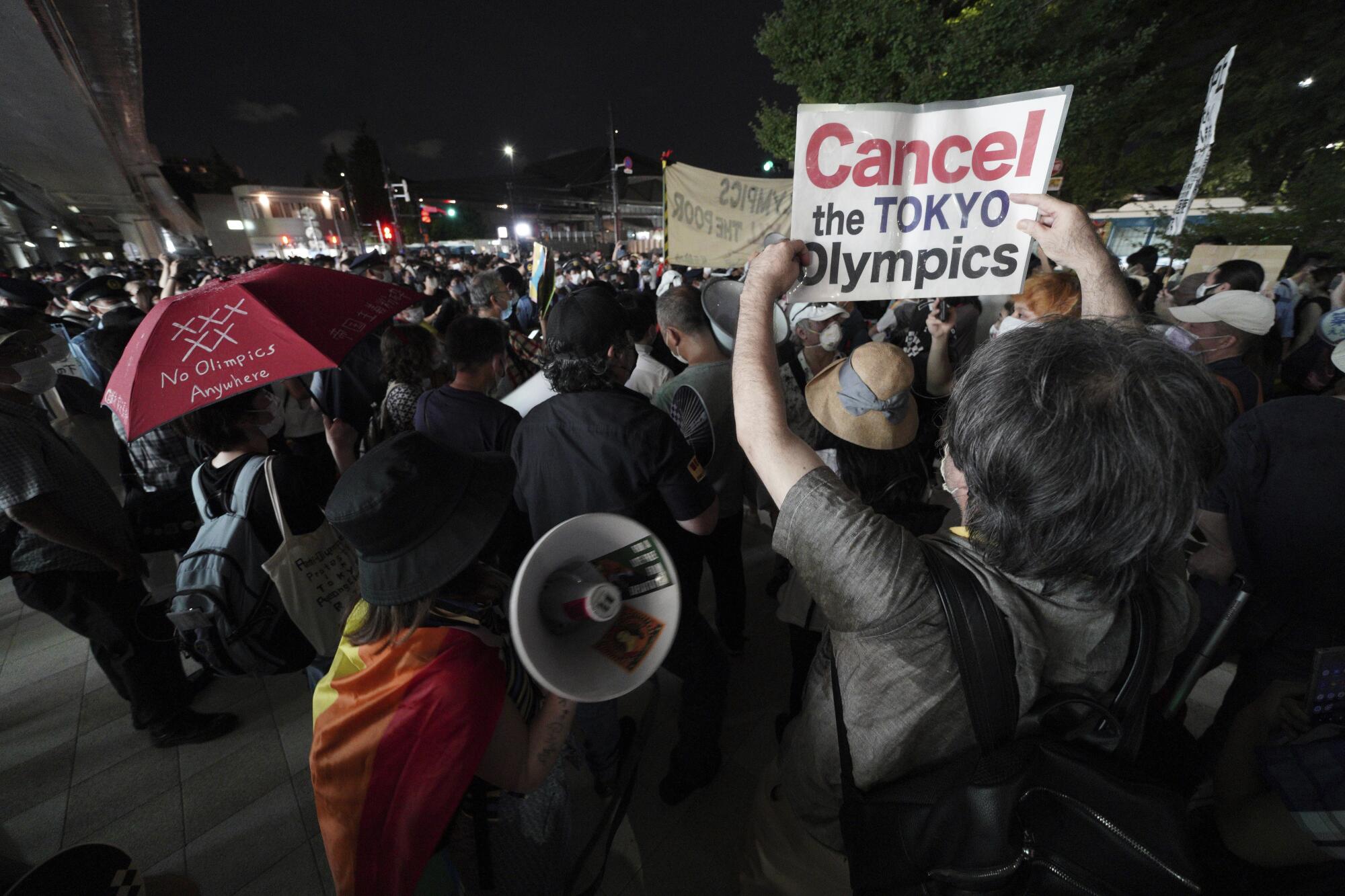
It has left a conflicted feeling for Japanese like Hachimura or tennis great Naomi Osaka, who lighted the Olympic torch capping Friday’s ceremony, who haven’t always felt accepted. Some Japanese cling to notions of ethnic and cultural homogeneity even as the country needs young people to replace the world’s fastest-aging population. Though cities like Tokyo have become more cosmopolitan over the last half century, only 2% of babies born in Japan have at least one foreign parent.
Athletes like Hachimura are “one of the few people that can bring major changes for us,” said Alonzo Omotegawa, who has a Japanese mother and Bahamian father and has lived in the Tokyo area his entire life. Yet he has been repeatedly told: You are not Japanese.
The Olympics began with an occasionally somber opening ceremony acknowledging the ravages of COVID-19 that forced this global sports event to be postponed for a year.
The 25-year-old English teacher said he questions whether Hachimura’s popularity and symbolism will be enough to stifle the discrimination he faces on a daily basis — change the minds of landlords who refuse to rent to him because of his skin color, children who ask if it will wash off or police who stop and search him without a warrant, saying people with dreadlocks like him “tend to carry drugs.”
“The country is only on our side when it wants to be,” he said.
Organizers devoted a chapter of Friday night’s opening ceremony to a performance featuring children of diverse ethnic backgrounds assembling the Tokyo Olympics emblem. For months, the slogan “Unity in Diversity” had been pasted on posters around the city, projecting at least for the international media that this nation of 126 million was pledging to become more nuanced and accepting.
At the same time, the pandemic, as it has elsewhere, has brought out in Japan suspicion of those who look different, and a fear they may bring danger. That unease has been amplified in recent days as tens of thousands of athletes and others from around the globe have filtered into a nation that had kept its borders heavily restricted, even keeping out many foreign expats who’d long called Japan home.
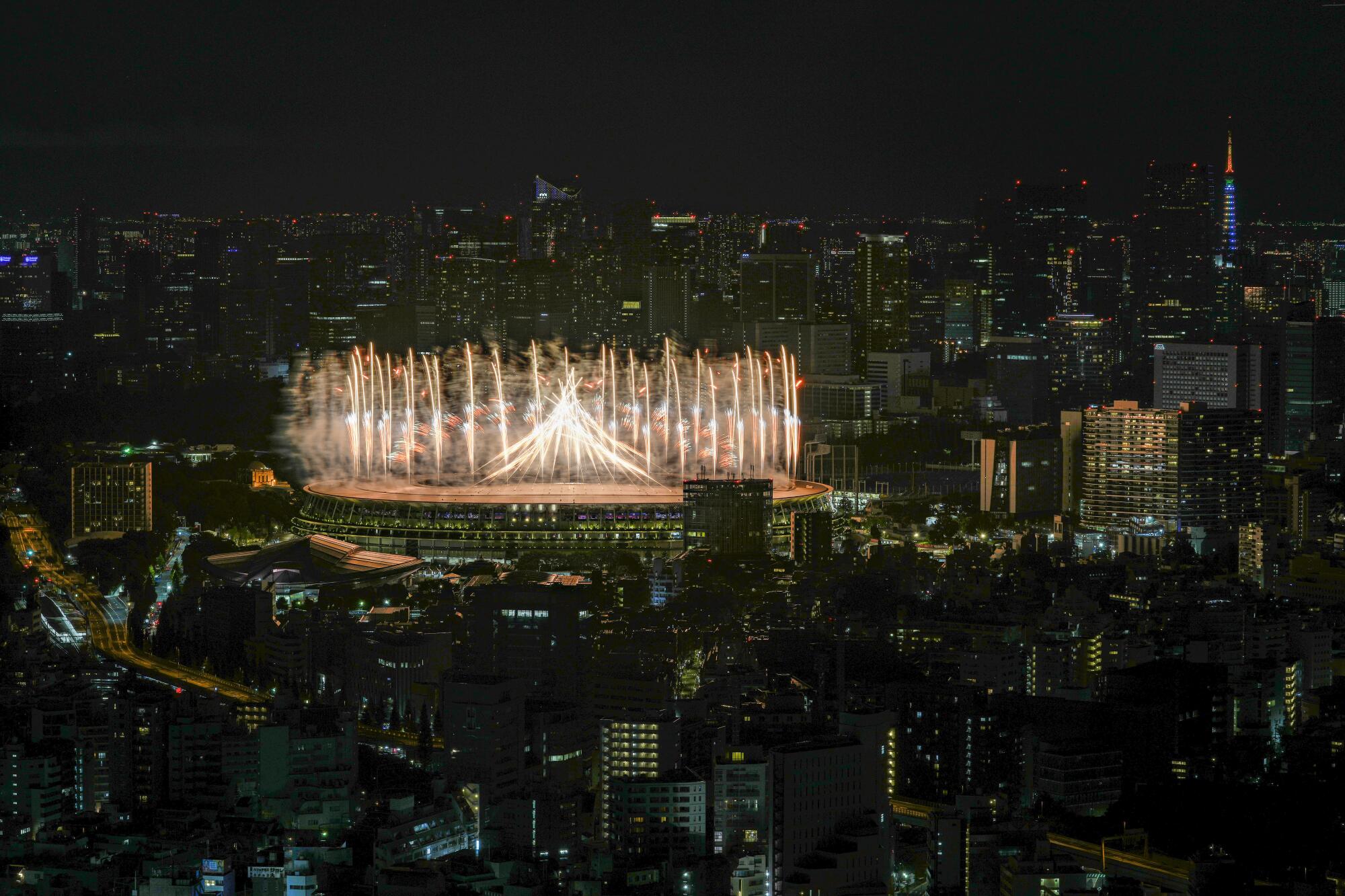
Gracia Liu-Farrer, a sociologist at Tokyo’s Waseda University who studies migration and inequality in Japan, said of the Olympics: “It’s ironic. It’s not a moment of change but a moment of almost intensification of xenophobia because of this global health crisis.”
Even so, she said, the international attention around the Olympics has led to soul-searching and introspection over discriminatory opinions and remarks that may have previously gone unchallenged. The week before the opening ceremony, a director who’d made a Holocaust joke years ago and a composer who admitted to once bullying disabled classmates stepped down from their roles.
“It leads to a lot of things under the surface to be surfaced,” she said. “This sort of display sensitizes the public to issues that were originally hidden.”
Forget about showcasing Japanese ingenuity to the world. The people in Tokyo can’t even be convinced that the Olympics will offer any value to them.
The last time Tokyo hosted the Summer Olympics in 1964, Japan’s team of 355, all but a fifth of them men, walked in lockstep dressed in red and white, even their white fedoras perched at an identical tilt. At Friday’s ceremony, the country’s athletes were an energetic, varied bunch as they posed for the cameras, some with different shades of skin and at least one purple head of hair.
Although public discourse surrounding diversity has intensified in recent years, Japan’s male-dominated leadership, many of whom are in their 60s and 70s, hold outdated notions of what constitutes Japanese identity, said Jotaro Kato, assistant professor at Waseda University’s Institute of Asia-Pacific Studies.
“Conservative politicians still believe in a homogenous Japanese society,” he said. They feel strongly, he added, that “Japan is not a country of migrants.”
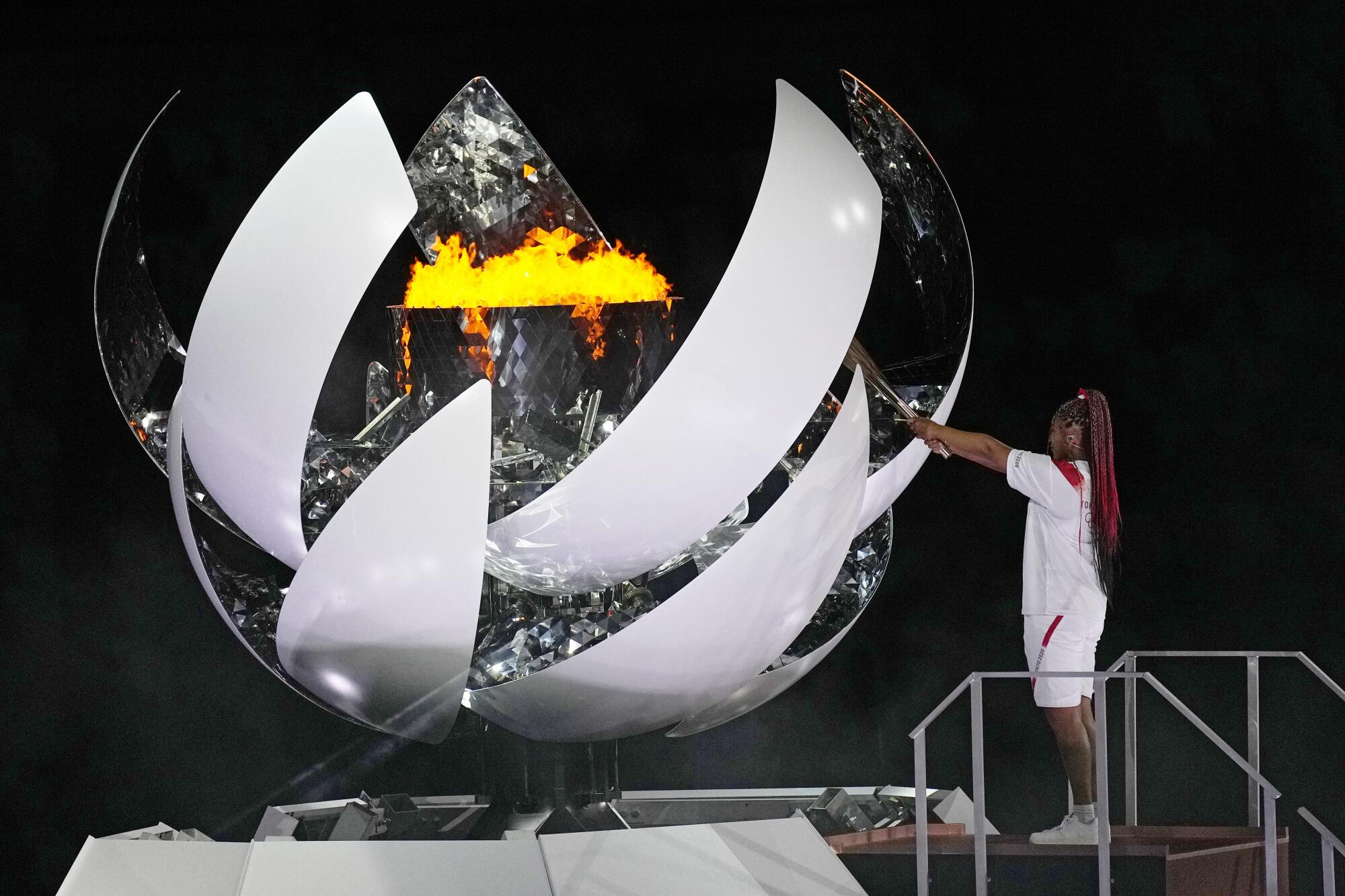
That remained true despite the labor crunch that became apparent during Olympic construction in Japan, Kato said. Migrant workers were brought from places including Southeast Asia to fill the need, but only under carefully circumscribed terms to keep the influx temporary, avoiding debate about demographic challenges faced by rapidly aging Japan.
“Once this is built, it was ‘bye-bye, thank you for construction of the site,’” he said. “That scheme illustrates the government just wants to utilize young people’s manpower and do not want them to settle down.”
Sumire Sofia Kierkosz-Ueno, 20, a student at McGill University in Montreal who has played ice hockey competitively in Japan and the U.S., said she hoped the Olympics would be a watershed moment.
“People need to understand that not all Japanese people look the same,” said Kierkosz-Ueno, who played for a Tokyo team for a year but never felt accepted because she was mixed-race with Ukrainian and Polish American ancestry. She speaks fluent Japanese and identified as Japanese, despite being raised in the U.S. “There has been this myth of the homogeneity of Japan which has been perpetuated for such a long time.”
A Tokyo Games mired in controversy could cast the Olympic movement into a void that could have consequences that reach all the way to Los Angeles.
The sense of lagging progress is also felt in Japan’s LGBTQ community. Highly anticipated legislation that would have barred discrimination against LGBTQ individuals was scrapped in June.
“We expected the Olympic Games to be a wonderful opportunity to introduce and pass legal protections so that everyone in society can live openly and safely. It is extremely disappointing that this law did not pass this time,” Yuri Igarashi, director of the umbrella organization Japan Alliance for LGBT Legislation, said in a joint statement with Human Rights Watch.
The zeal of politicians to push ahead with the Olympics in a nation still gripped by the pandemic obscured larger questions about diversity, said Jeff Kingston, professor of modern Japanese history at Temple University in Tokyo.
“A lot could have been done with the cudgel of the Olympics to promote diversity and inclusion,” he said. “They have been so focused on rescuing the Olympics that a lot of these other issues have fallen by the wayside.”
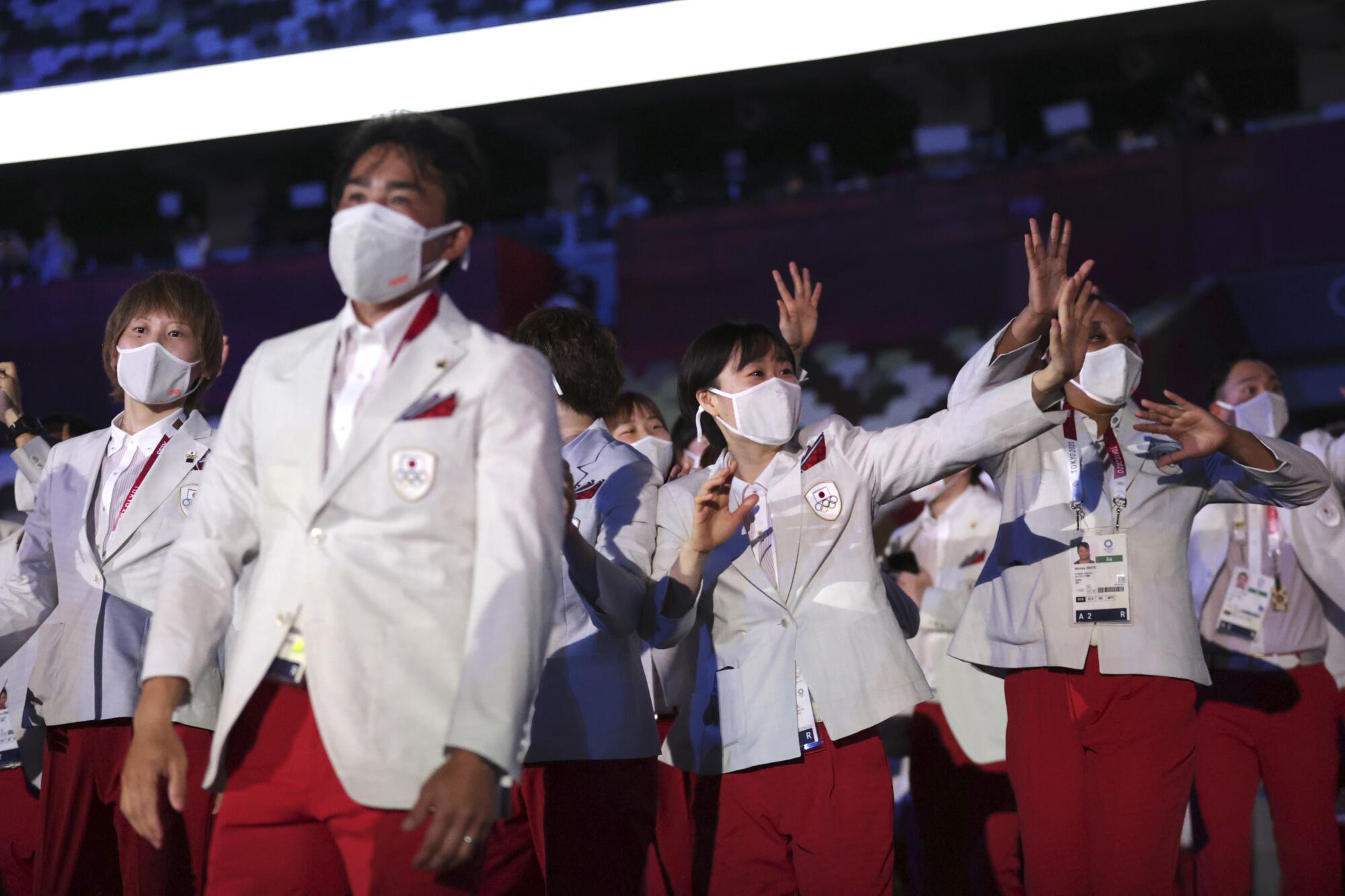
Isaac Lew, 40, a YouTuber and Twitch streamer originally from Los Angeles, said that even though he has lived in Japan for more than a decade, the pandemic was an acute reminder of how little Japanese society has changed.
“People started looking at all foreigners as the cause of problems,” said Lew, who is engaged to a Japanese partner. “You can learn as much Japanese as you want, but you will never be Japanese. You will never be looked at as Japanese and you will never be treated on the same level as a Japanese person.”
But Dai Sugiura, director of operations and player relations at the Wasserman agency in Japan, which represents Hachimura, said Friday’s ceremony marked a significant moment for the country on the world stage.
“It’s a great opportunity to show the culture here is changing. It has to change,” he said. With athletes such as Hachimura and Osaka, he said, “finally the Japanese culture is starting to respect that, saying, ‘Those are our people.’”
Kim is a Times staff writer and Lowry is a special correspondent.
More to Read
Sign up for Essential California
The most important California stories and recommendations in your inbox every morning.
You may occasionally receive promotional content from the Los Angeles Times.
